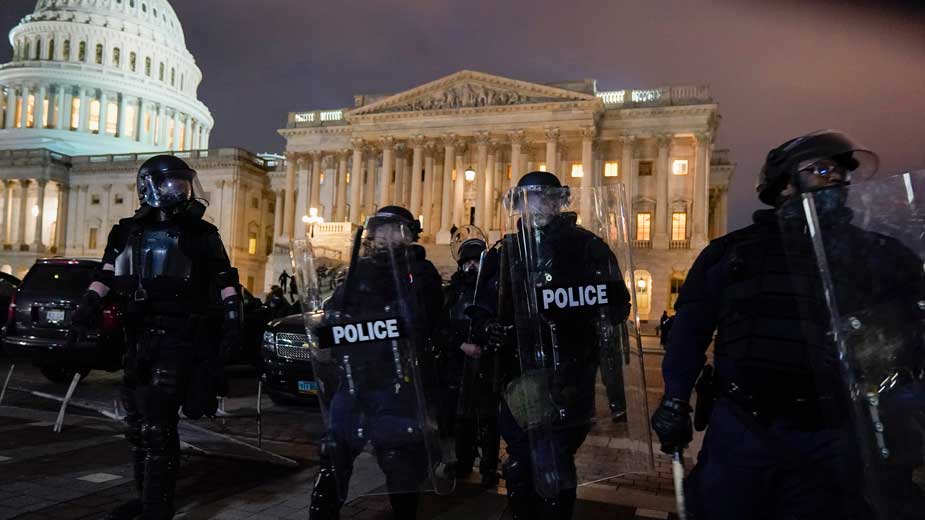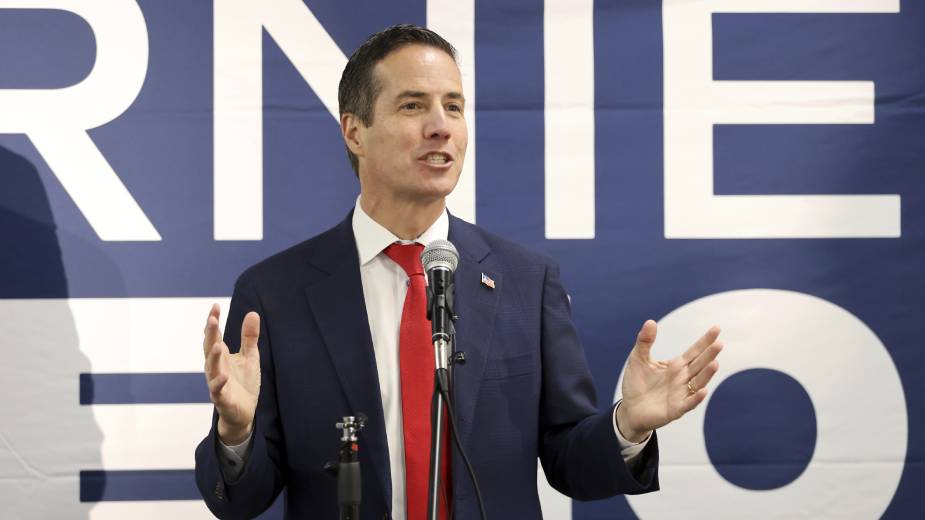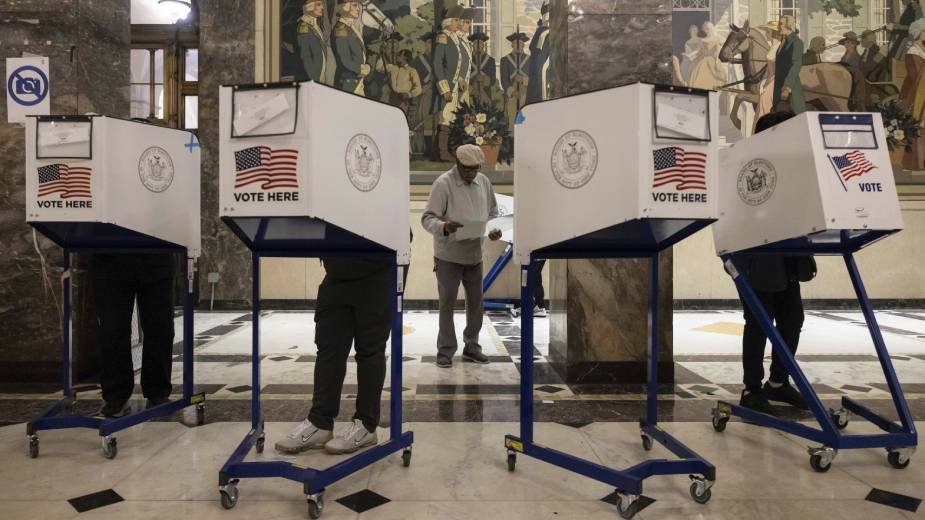Ryan: Lack of Communication, Coordination Led to Capitol Siege
YOUNGSTOWN, Ohio – The Jan. 6 siege of the U.S. Capitol Building came down to two failures by Capitol Police, U.S. Rep. Tim Ryan said Tuesday: communication and coordination.
After the House Appropriations Committee’s first hearing on the events of that day, in which a mob of supporters of former President Donald Trump stormed the building during a vote to certify Joe Biden as the winner of the presidential election, Ryan said the work now is to put together a “minute by minute account” of what happened.
“The public knowledge, the open source information, all pointed to something bad that was going to happen. We knew at some level. They knew at some level. The question is why that intelligence wasn’t acted upon,” said Ryan, D-13 Ohio. “We want to know why the board that oversees Capitol Police did not act upon that and didn’t want to allow for an increased amount of support from the National Guard.”
In a prepared opening statement, Capitol Police acting chief Yogananda D. Pittman offered her “sincerest apologies on behalf of the department” and called the events of the siege a failure of the police force.
“Although the department fulfilled its mission of protecting members and democracy ultimately prevailed, the insurrectionists’ actions and the department’s inability to immediately secure the U.S. Capitol emboldened the insurrectionists and horrified millions of Americans,” she said. “We fully expect to answer to you and the American people for our failings.”
Ryan, who is chairman of the Appropriations Committee’s legislative branch subcommittee, said Tuesday’s closed-door hearing was “the beginning of the beginning.” In addition to Pittman, among those testifying were officials from the U.S. Attorney’s Office, Secret Service, National Park Service Police, the assistant director of the FBI’s field office in Washington, Army Secretary Ryan McCarthy, D.C. National Guard commanding general Maj. Gen. William Walker and J. Brett Blanton, architect of the Capitol.
“Talking to the rank and file, there was a great deal of confusion minute to minute on Jan. 6 as far as what to do, where to go, what the posture was, where the backup was. The whole situation was full of confusion,” Ryan said. “It’s getting narrowed down to why the Capitol Police board rejected requests and why the authority was taken away from Maj. Gen. Walker with the D.C. National Guard to make split-second decisions. That still would have only released a few hundred Guardsmen immediately, so it’s still a matter of preparation. Those are the key decisions we need to get to the bottom of.”
At the hearing, Pittman said two days before the attack, then-Capitol Police chief Steven Sund requested the Capitol Police Board declare a state of emergency and authorize a request for National Guard support, both of which were denied. The day of the attack, it took more than an hour for the board to approve Sund’s request for National Guard support. Two members of the three-person board have already resigned: former House sergeant at arms Paul Irving and Senate sergeant at arms Michael Stenger. Blanton is the third member of the board.
“Whether it was insufficient or conflicting intelligence, lacking ability to translate that intelligence into action, insufficient preparation or an inadequate ability to mobilize partner agencies for immediate assistance, a series of events, once thought unfathomable, unfolded allowing our most sacred halls to be breached,” said Timothy Blodgett, the acting House sergeant at arms at the hearing.
Ryan also pointed to divisions stoked by Trump and social media networks’ exacerbation of extreme beliefs as the impetus for the attack. Over the years, several studies have found the content algorithm used by Facebook, for example, has often pushed people toward more and more extreme views by way of its recommendation feature.
“What happened with Jan. 6 is that extreme version presented itself to White supremacists and other organizations. The president threw gasoline on the fire and built a lie around the election being a fraud,” he said. “That division and that extremism is there still.”
Less than a week into the presidency of Joe Biden, there have already been calls to unify the country, an effort Ryan says is incumbent upon every American and reaching an agreement on the facts of issues.
“Where we’ve got to begin the healing process is saying, ‘Can we come to an agreement on what the problems are in this country? What are the challenges everybody faces?’ We may not agree on solutions, but let’s agree on the problems,” he says. “The work going forward is what Joe Biden said in his inaugural address and what Mitch McConnell said on the floor before the insurrection came in: we have to start operating from the same set of facts.”
In cases like Trump’s false claim that the election was somehow stolen from him, Ryan points to the 60-plus court cases and the certification of election results by Boards of Elections in all 50 states. When there’s disagreement over the facts, Ryan said the courts are there to serve as an impartial arbiter.
“We have to agree that if there’s a dispute on the facts, the courts will decide the facts and what happens. That’s how you resolve disputes peacefully. I think most Americans can agree with that, even if they disagree with the ruling of the court,” he said, calling out Sen. Ted Cruz and U.S. Rep. Josh Hawley of Missouri for their continued support of Trump’s conspiracy theories.
“They knew better; they’re Harvard-educated lawyers who know there were 60-some cases taken to the courts and not one of them went anywhere,” Ryan said. “All the states certified and they knew that. It’s irresponsible on behalf of the leaders who affirmed that conspiratorial belief.”
While Tuesday’s hearing was closed, Ryan said he expects future meetings to be open unless the testimony is covering security information. The ultimate goal, he continued, is to redevelop the Capitol Police force into a “model American police force.” Already, work is underway to look at policies and procedures in use at capitals in the states and abroad, as well as looking at the expertise available in American law enforcement and military.
“It’s going to start building a force that I would like to be the model American police force when it comes to training, diversity, the use of force, crowd control and all of that. It needs to be the finest force in the country and a model for everyone else,” Ryan said.
The key to the reforms will be striking a balance between security and the public’s ability to access their government, he added.
Pictured: Authorities remove protesters from the U.S. Capitol, Wednesday, Jan. 6, 2021, in Washington. (AP Photo/Jacquelyn Martin)
Copyright 2024 The Business Journal, Youngstown, Ohio.



